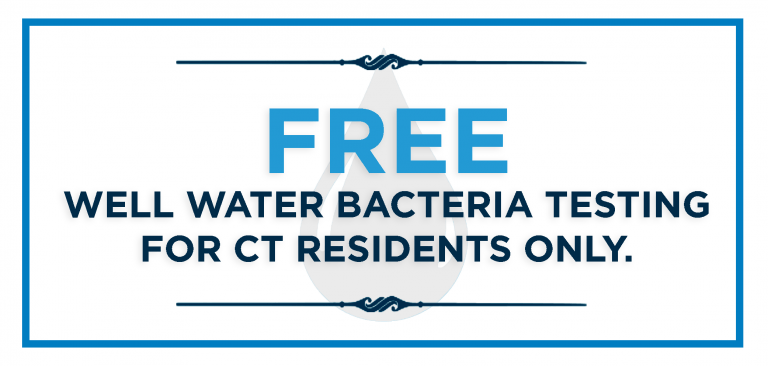What Toxins Could Be Hiding in Your Well Water
Reliable statistics indicate that 15 percent of the US citizens rely on private wells as their primary source of water. In as much as well water can cut down the monthly expenses tied to piped water, reports from the Environmental Protection Agency indicate that the clear water from your well might be containing numerous toxins.
Are you one of those citizens who have been using well water? If you are, then it is time you spared some time to educate yourself on how this water might harm your health. Read this article to expand your knowledge on well water and the toxins that it may contain.
What Are the Possible Contaminants in Well Water?
Water quality experts say that your well’s water might appear crystal clear but be full of biological, physical, and chemical contaminants that may not cause a perceptible change in its color, taste, smell, or even its touch. Some of the harmful toxins that might be present in your well water include:
Fecal Matter
Animal waste is the most common contaminant often found in well water. Fecal matter contains loads of pathogens like coliform bacteria, Giardia, which causes giardiasis, Vibrio cholera, which causes the life threatening cholera, and many other pathogens that may cause various gastrointestinal disorders.
Algal and Bacterial Growth
It is obvious that debris like leaves, twigs, and other organic matter can easily find their way into an open well. While such items may seem harmless, they may pose substantial health hazards when they accumulate and start rotting in your well.
For instance, the decayed debris can trigger the growth of algae whose toxins are extremely poisonous to human beings and other animals. Similarly, the rotten debris might support the growth of disease causing colonies of bacteria.
Mineral Salts
Reliable lab reports indicate that water from natural and artificial sources contain dissolved mineral salts from rocks and soil. Some of these mineral salts include calcium, fluorine, iron, and potassium, whose ingestion at the recommended levels is beneficial.
For this reason, the levels of these mineral salts need to be tested and controlled as they can cause conditions like glaucoma, teeth staining, kidney stones, and many other conditions when they are ingested at high levels.
Furthermore, well water may contain contaminants like arsenic, lead, and other heavy metals that are toxic. While most contaminants like bacteria can be killed through boiling and chlorination, such treatment does not eliminate the dissolved mineral salts and heavy metals.
Nitrates
Nitrates are other common contaminants that are often found in well water. This is because they are naturally available in soil and rocks where well water is found. Nitrate based water contamination can also be a result of nitrogen fertilizers used in farming or fecal matter from poultry farms.
Babies who ingest nitrate-contaminated water may develop the blue baby syndrome, a serious condition that can cause death. The nitrate-contaminated water is also associated with abortion in human beings and animals.
Radioactive Elements
Radionuclides are common water contaminants found in wells sunk on granite bedrock or other rocks that contain radioactive elements. Some of the radioactive elements found in water include uranium, which can cause kidney damage, and radon whose exposure causes lung cancer. Prolonged use of radionuclide- contaminated water can also disrupt life sustaining cellular activities.
Industrial Chemicals
Industrial chemicals from petroleum refineries, mining plants, or disposal sites are capable of traveling long distances through leaching and may eventually find their way into your well. Some of these industrial chemicals include heavy metals, cyanides, and radionuclides.
What Is the Way Forward?
Experts from Mosman Well Works say that you should find an expert to assess the quality of your well’s water soon after you construct it. Some of the methods used in evaluating the quality of your well water include conducting a total coliform count, testing for anaerobic bacteria, and evaluating the proximity of your well to factories, landfills, or toilets.
When Should You Assess the Quality of Your Water?
According to Mosman Well Works, numerous factors determine the number of times you should test the quality of your water. For instance, the quality of water in a well maintained well that is located far from sources of contamination should be assessed at least once a year.
However, frequent testing is required if water from the well serves children, pregnant women, people suffering from long term health conditions, and senior citizens.
Other situations that may force you to test the quality of your well water more than once in a year include:
- During heavy rains since this is the time when your well is most likely to be contaminated with fecal matter, leachate from landfills, and nitrates from farmlands.
- You should also assess the quality of your water whenever your septic system leaks or overflows. This is because a septic spillage can find its way into your well if it rains.
- Have you been complaining of chronic intestinal conditions? If you have, then you need to check the quality of your well’s water as it might be contaminated with fecal matter.
- You should also assess the quality of your well’s water during the drought season since it is the best time to spot the minerals in the water.
Are you looking to assess the quality of your water? We suggest that you contact Mosman Well Works. The company works with a highly experienced team of technicians who will determine the quality of your water using modern equipment.




